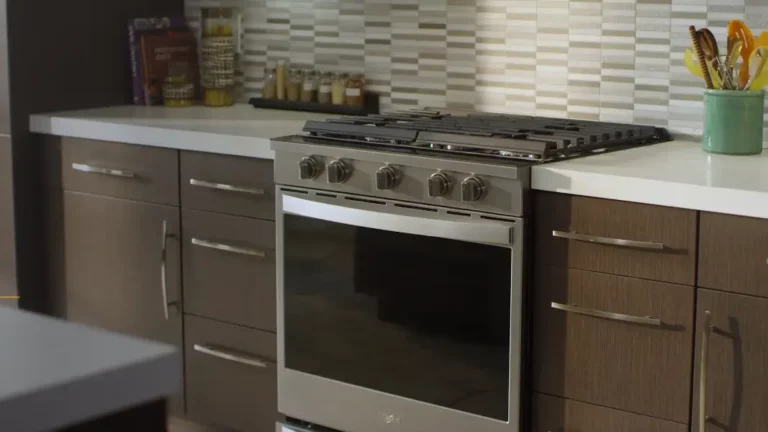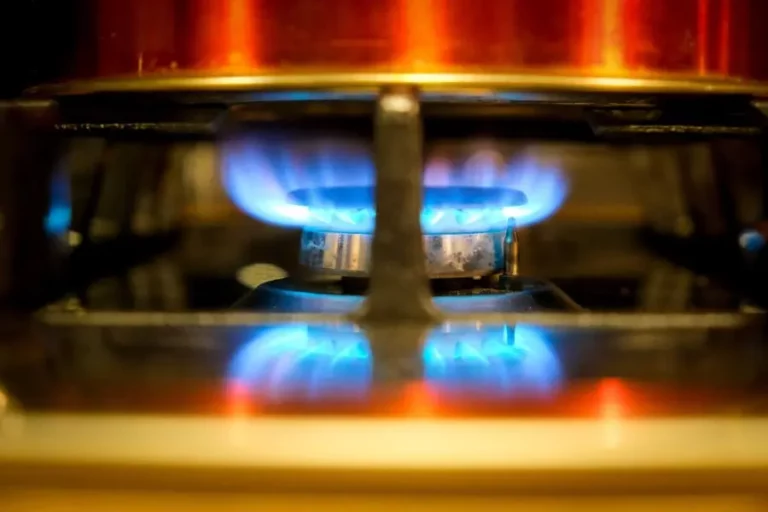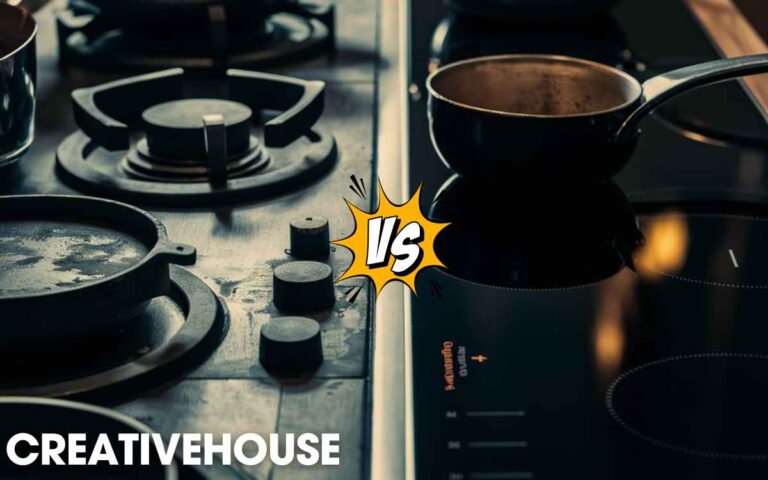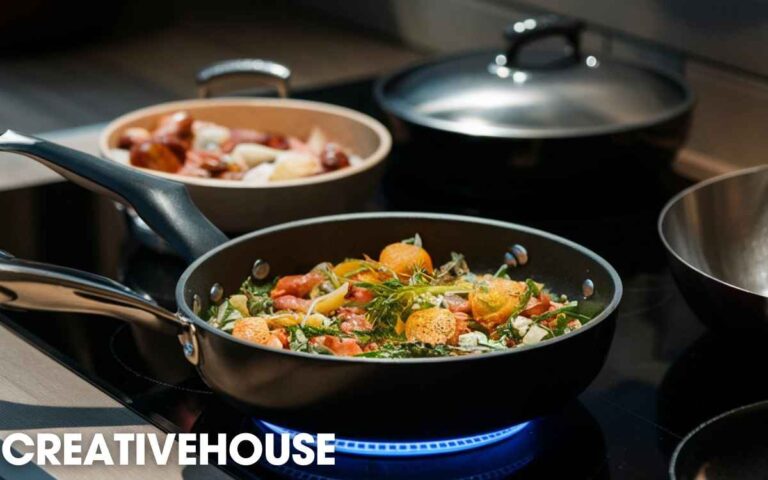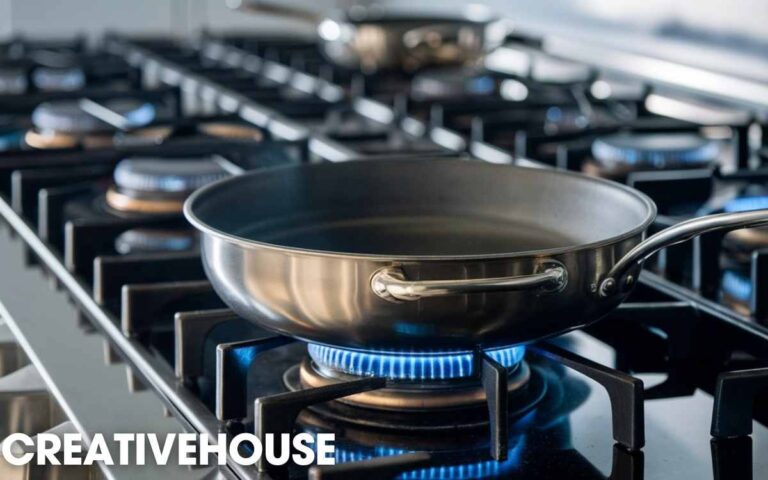Induction stoves gained popularity among homeowners as a technologically advanced alternative to gas and electric stoves. But most modern American households have yet to switch to it.
The long-term benefits claims are not making people jump on the bandwagon. So it begs the question “Is induction stove worth it?” The short answer to that is yes, it is worth it and everyone should get one.

The Arguments for Induction Stoves: The Good
There are a couple of things you should know about before jumping to get an induction stove.
Here are some benefits of using induction stoves:
Technologically Advanced
Induction stoves are a big leap in cooking technology. From coils or flames to transfer heat to utilizing electromagnetic fields, this tech has come a long way.
These stoves utilize the magnetic properties of the cookware to heat them up through the field. There is absolutely no need to wait for the entire cooking surface to heat up.
Simmering those delicious sauces or searing meats to perfection got a whole lot easier because of this. For technology to adapt even further, users need to hop on the latest tech trains.
Induction stoves are the most advanced technology so far. Most professional kitchens have all sorts of stoves but induction is quickly taking a major portion of it because of its functionality.
Efficiency and Speed
One of the main reasons why induction stoves are becoming increasingly popular is their energy efficiency. Induction cooktops can be up to 10% more efficient than electric ones.
This is even more when compared to gas stoves. The efficiency increases by almost a whopping 300%. So this makes it a no-brainer to ditch the old gas stove for the new induction ones.
This high efficiency is due to the direct transfer of heat to the cookware, minimizing heat loss and wasted energy.
Cost Savings
Induction stoves have a higher initial cost than typical gas or electric stoves. But it makes up for it by saving your electricity and gas bills. These stoves use less energy thanks to their efficient operations.
Because the surface does not heat up, there will be no residual heat in the kitchen. You will not have to invest in a cooling solution or a humidifier during dry seasons.
Households that switch to induction cooking can save around 8-10% on their utility bills. Not only does it make your cooking faster, but it also brings long-term costs down which is pretty neat.
It also takes less time to cook your meals so you are using the stove less. No matter how you slice it, induction stoves’ cost savings are noteworthy.
Safety Considerations
Gas and regular electric stoves have reported cases of causing fires and burn victims.
According to the National Fire Protection Association (NFPA), Ranges or cooktops are involved in 53 percent of home cooking fires and 88 percent of deaths resulting from these incidents.
The number of people with second-degree burns or worse is countless. Even though these numbers are from multiple decades, there are no known cases of induction stoves causing fire.
Goes to show how strictly manufacturers take in building safe induction cooktops for users.
Moreover, the surface not heating up adds to this value. Accidental burns are out of the question and lessen most of your worries.
Environment-Friendly Operations
Induction cooktops heavily minimize energy waste by directly heating the pot or pan you use to cook.
This means it needs less electricity to finish cooking your meals and leaves lower greenhouse gas in the environment. The environmental footprint that comes out of induction stoves is almost to the point where it is negligible.
Conserving the low amount of resources our planet has is of utmost priority these days.
As we keep running out of natural gas and oil, it becomes that much more important to conserve what little power source we have left.
There are also lower amounts of carbon emissions from induction stoves. So far induction stoves seem like the best option for all your cooking needs to get a greener future.
The Arguments Against Induction Stoves: The Bad
Induction stoves are not just a bed of roses. There is some unpleasant stuff about it as well.
The Need to Change Cookware Sets
You can use almost any type of cookware on gas stoves. Does not matter if it is made of iron or clay it will work on the flames. Most steel cookware works on electricity.
But induction has this special little need for ferrous metal which needs to have magnetic properties for it to work. This means that only the pots and pans that have a magnetic bottom are suitable for the induction stoves.
That is not the end of the line. Finding induction stove-compatible cookware that meets your needs can become quite challenging.
There are only a handful of cookware that are either plain or cannot cook special food that you prepare on special pots and pans. Not all brands and styles are readily available on the market.
More often than not, if you are into preparing food that requires these special cookware shapes and sizes, you will have to get them custom-made with cast iron or stainless steel.
More Expensive Upfront
Induction stoves come with a hefty price tag. Getting one installed in your kitchen can make it even more expensive.
If you go over to any good induction stove reviews, the lowest you can get for a decent induction stove is over $1000. The best value Frigidaire FGIH3047VF induction range comes at a steep price of $1800.
Part of the cost directly comes from the advanced technology built into these things. The electromagnetic coils and the control system do not come cheap.
For those who already have extensive sets of cookware that do not work on induction stoves, the cost becomes even more apparent.
Irritation from Humming Noise
Induction stoves make a persistent humming noise while on. This is from the electromagnetic coils putting up vibration to create the field.
It is nowhere near deafening or disturbing but some people feel it to be annoying. And if you have heightened senses, it can become a real issue. The noise will be more noticeable if you live in a quiet neighborhood.
The noise levels depend on how much power the stove uses. The more heat it needs to put out, the more noise it will make and that can be a serious deal breaker for many people.
Adjusting Your Cooking Style
Switching to induction cooking from gas or electricity needs some adjustments to how you cook your meals.
Induction stoves heat cookware quickly and evenly. So it becomes paramount to adapt the cooking times and heat levels.
When you add ingredients or change it up based on how much heat the stove gives you can play a big role in how your food turns out.
There is a slight learning curve because you will not see any red glow or burning flames to understand how much heat the cookware has absorbed. You can get to the same point in your skill with minor changes and a little bit of practice.
You Cannot Use Some Cooking Techniques
Cooking with induction stoves will take a bit of getting used to it. There are caveats to switching when you frequently char food. Crisping up some peppers or getting a quick tortilla toast will be harder than usual.
Moreover, cooking techniques that need direct contact with an open flame will be a no-no. These are some limitations of an induction stove that users have to deal with.
You also have limited control over how the heat is distributed, You cannot get a high enough heat level for some cooking techniques.
That is why chefs prefer having gas stoves along with induction in their kitchens to mitigate this problem.
Is Induction Stove Worth It: Balancing the Positive and Negative Aspects
When you consider the various aspects of induction stoves the positive ones heavily outweigh the negatives.
The answer to “Is induction stove worth it?” is very straightforward. Induction stoves are a hundred percent worth it.
However, since there are some drawbacks and changes to how you cook and what cookware will work, it is best to identify your needs before jumping on the bandwagon.
Nevertheless, an induction stove will be the best choice for you no matter what you cook and how you do it. In some countries, even the governments are pushing the use of induction stoves.
These stoves are efficient, cook fast and well, are safer than other stoves, and leave the least amount of carbon footprint in the environment. To me, that is a definite yes to switching over to an induction stove or range.
Is induction Stove Worth It – (FAQs)
Can I use an induction cooktop with a pacemaker?
Induction cooktops generate electromagnetic fields, but the level of exposure is generally considered safe for people with pacemakers. However, you should consult your doctor before getting one.
How long does an induction stove last?
An induction stove has an average lifespan of 10 years. Like any other appliance, if you hit the silicon jackpot your stove will last longer than that.
Why are induction stoves so expensive in the US?
The main reason is economies of scale. People in the US have yet to mainstream induction cooktops as their main stove so sales are lower and prices higher. In the UK and Asia, induction stoves come in as cheap as any other gas or electric stoves.
References:
https://forums.redflagdeals.com/induction-range-real-reviews-2349308

